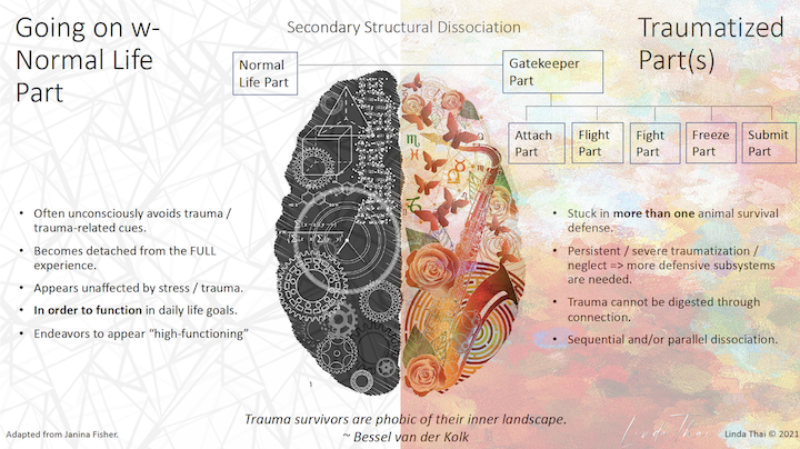Do you find yourself struggling with clients who present with paradoxical and contradictory behaviors? …behaviors that are the symptoms of their internal tensions between the drive to survive and the drive to connect….behaviors that are the symptoms of disrupted attachment and complex developmental trauma.
For example, they appear motivated to make changes in their lives and yet, can also present as help-rejecting or openly disparaging towards the efforts of the therapist. Perhaps they alternate between defiance and compliance, charming and self-harming, grandiosity and self-loathing, stoically independent and yet terrified of abandonment.
Developmental Trauma Disorder (Herman, 1992) involves early-onset, protracted, repeated interpersonal traumatization across key developmental stages involving the perceived inability to escape , and results in a disorder of self-organization : affect dysregulation, negative self-concept, and impaired functioning in relationships.
Structural Dissociation of the Personality theory (Nijenhuis, van der Hart & Steele, 2006) provides a map for the fragmentation of self that occurs as a result of these chronic attachment failures, breaches and abuses within the care-giving system. By combining Structural Dissociation of the Personality Theory with Attachment Theory and the somatics of trauma (Fisher, 2017), class participants will develop a comprehensive clinical understanding and enhance therapeutic effectiveness in working with the intra-psychic terrain of those who have experienced traumatic attachment disturbances.

$35.00 USD
Online Course
Included features:
In the spirit of addressing historic and systemic barriers to participation, there are several equity pricing scholarship spaces available for this training. Priority of access for BIPOC and LGBTQ+ individuals, individuals living with disabilities, and individuals living with lower income.
Please contact: [email protected] with your request.
Sign up with your email to receive news and updates.